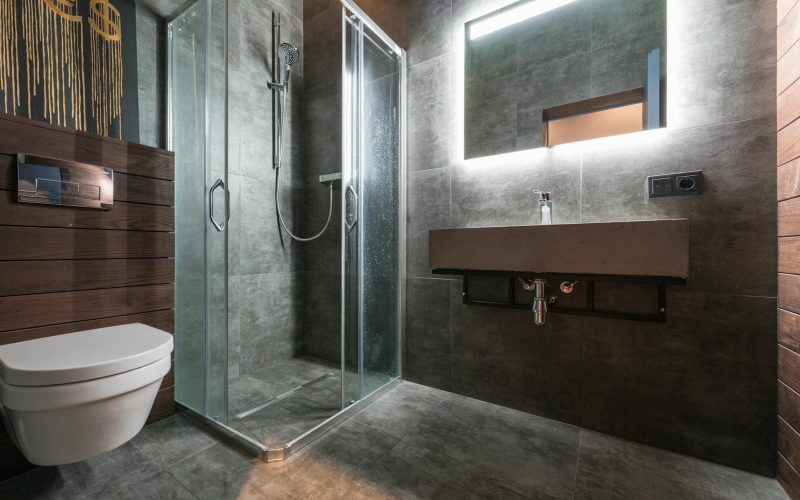Understanding how long a remodel will take is essential for homeowners planning improvements to their property. Whether you’re renovating a single room or undertaking a full-home transformation, timeline expectations help with scheduling, budgeting, and minimizing disruption to daily life.
While every project is unique, the following guide outlines general timelines based on project type, along with factors that can affect duration and key considerations for homeowners.
Kitchen Remodel: 6 to 12 Weeks
Kitchen remodels are among the most complex and time-intensive residential projects. The timeline largely depends on the scope—whether it’s a cosmetic update or a complete structural redesign.
Typical timeline:
- Planning and design: 2 to 4 weeks
- Permits and materials procurement: 1 to 3 weeks
- Construction phase: 4 to 8 weeks
Potential delays include:
- Custom cabinet manufacturing
- Relocation of plumbing, electrical, or gas lines
- Structural changes such as removing or relocating walls
Early decisions on finishes and layout can help keep the project on schedule.
Bathroom Remodel: 3 to 8 Weeks
Despite their smaller size, bathrooms often require input from multiple trades, including plumbing, electrical, and tile installation specialists. Timelines can vary significantly depending on layout changes or high-end features.
Typical timeline:
- Planning and permitting: 1 to 2 weeks
- Construction: 2 to 6 weeks
Factors that may add time:
- Custom tile installations
- Changes to plumbing layout
- Upgrades such as heated floors or specialty fixtures
If this is the only bathroom in the home, additional coordination may be required to ensure continued access to essential facilities.
Basement Remodel or Finish: 8 to 14 Weeks
Finishing or remodeling a basement often involves structural, mechanical, and moisture-control work. Projects that include additional bathrooms, living areas, or bedrooms require more time for permitting and inspections.
Estimated timeline:
- Design, planning, and permitting: 3 to 4 weeks
- Construction: 6 to 10 weeks
Common challenges include:
- Waterproofing or correcting drainage
- Installation of egress windows
- HVAC reconfiguration
Basement projects frequently require staged municipal inspections, which can add time depending on the jurisdiction’s schedule.
Whole-Home Remodel: 3 to 6 Months or More
Comprehensive renovations involving multiple rooms and systems represent a significant investment of time and resources. These projects may include demolition, structural changes, systems upgrades, and extensive finish work.
General timeline:
- Design and planning: 4 to 8 weeks
- Permitting and engineering: 2 to 4 weeks
- Construction: 12 to 20+ weeks
Additional considerations:
- Coordination among numerous trades
- Complex permitting and inspection schedules
- Potential for concealed structural issues discovered during demolition
Working with a single design-build firm often improves efficiency and reduces the likelihood of miscommunication or rework.
Additions: 3 to 5+ Months
Adding square footage—such as a new room, sunroom, or expanded kitchen—requires foundation work, structural integration, and attention to zoning codes. The timeline is often extended due to the involvement of both interior and exterior construction processes.
Typical timeline:
- Design, approvals, and permitting: 4 to 6 weeks
- Construction: 10 to 16+ weeks
Time-intensive elements include:
- Site grading and foundation installation
- Framing and weatherproofing
- Integration with existing roof, siding, and mechanical systems
Weather delays can also affect the schedule, particularly if construction begins in colder or wetter seasons.
Custom Cabinetry and Built-Ins: 2 to 6 Weeks
Built-in shelving, closets, or custom storage units are smaller-scale projects that can enhance functionality without requiring full-room renovations. Timeline depends primarily on fabrication and material lead times.
Typical breakdown:
- Design and measurement: 1 week
- Fabrication: 2 to 4 weeks
- Installation: 1 to 2 weeks
Early approval of design specifications can reduce production wait times.
Factors That Commonly Cause Delays
Even well-planned projects can encounter delays. Some of the most frequent causes include:
- Extended permit processing timelines
- Backordered or custom materials
- Unanticipated structural or code compliance issues
- Weather conditions (for exterior or addition work)
- Mid-project design changes or change orders
Homeowners can minimize delays by finalizing design decisions before construction begins and by working with contractors who provide clear communication, accurate timelines, and comprehensive scopes of work
Renovation timelines vary depending on the project’s size, complexity, and level of customization. A modest bathroom update may take only a few weeks, while a full-home remodel or addition can span several months. Understanding these timelines in advance helps set realistic expectations and ensures smoother execution.
For those planning a renovation, the most reliable way to get an accurate schedule is through a detailed proposal and scope review with an experienced contractor. A well-structured plan, clear communication, and efficient coordination between trades are key factors in delivering your project on time and within scope.









